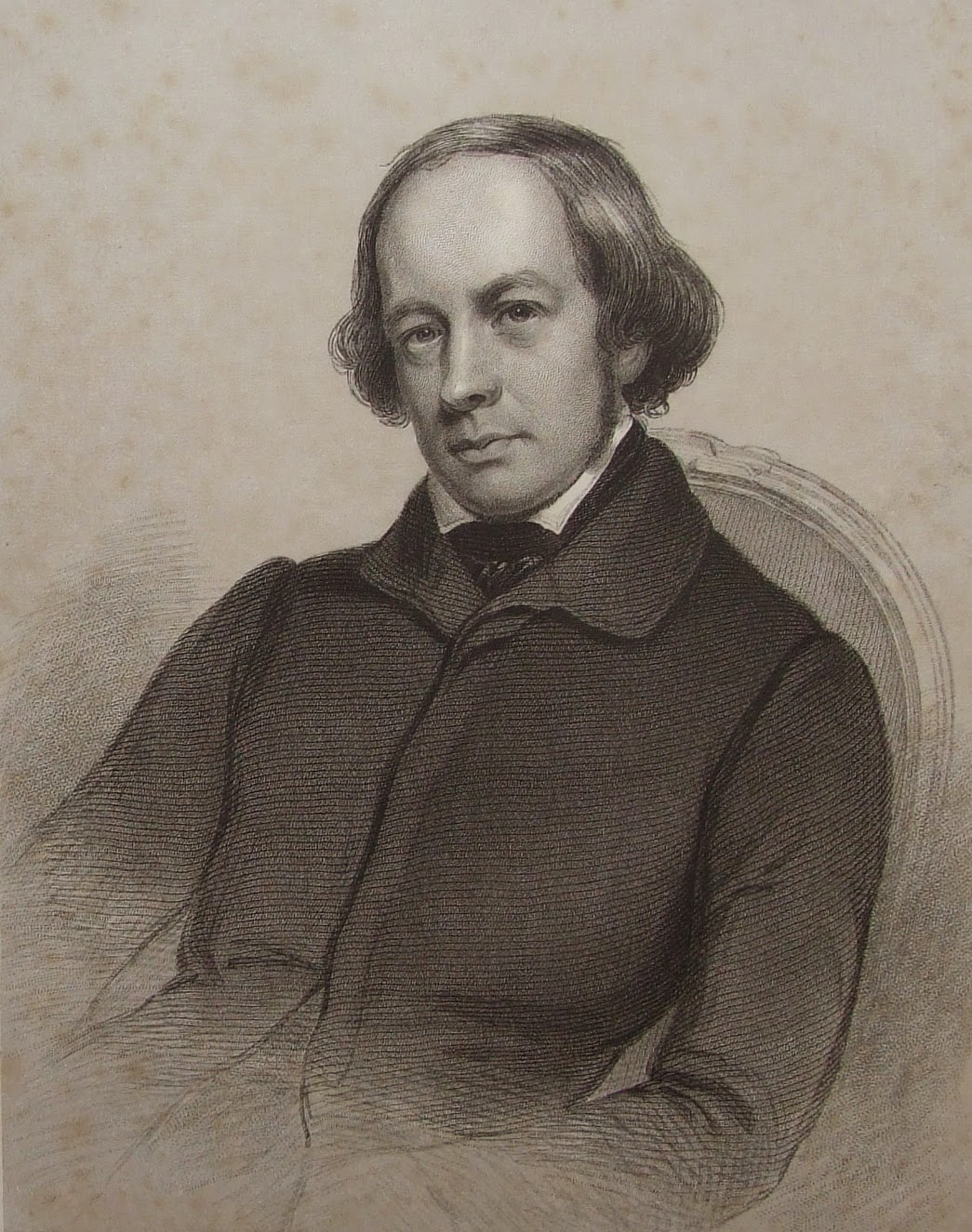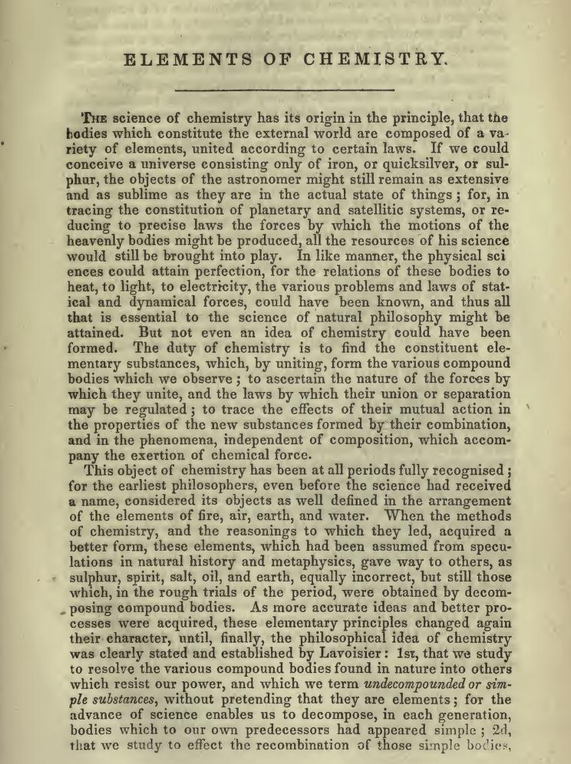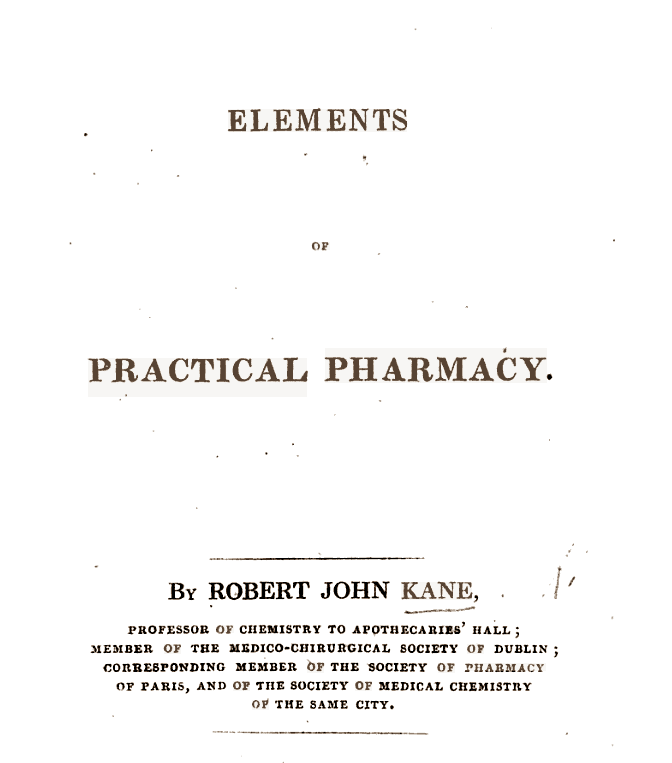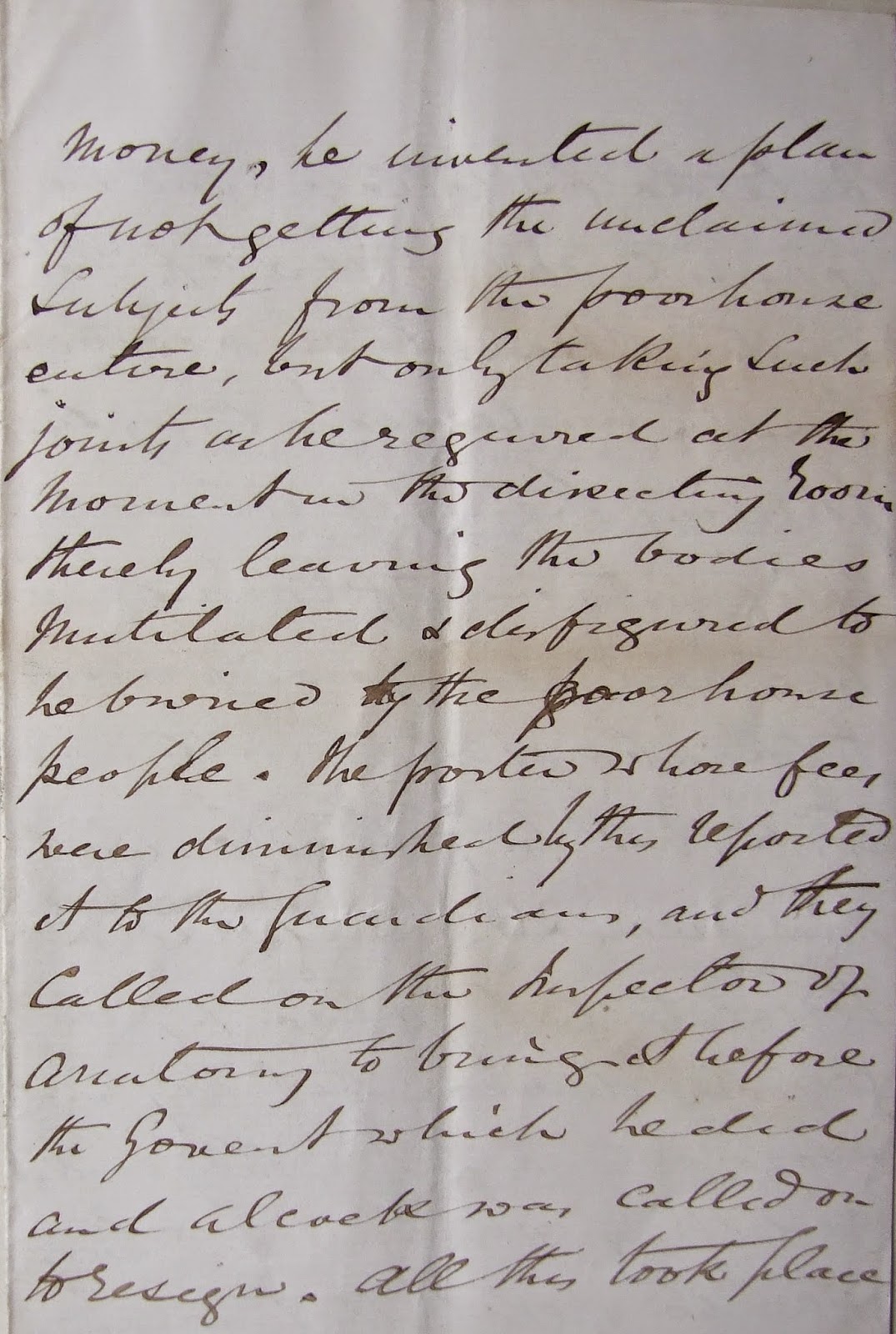Sir Robert John Kane, Irish chemist
 |
Portrait of Robert John Kane, dated 1849
(RCPI Archive: VM/1/2/k/1) |
Robert John Kane was one of the most famous Irish chemists.
Born in Dublin in 1809, Robert John
Kane was the son of John Kean, a former United Irishman who had participated in
the 1798 Rebellion. John Kean fled to Paris following the failure of the
Rebellion, where he studied chemistry. In the early 1800s Kean changed his name
to Kane, returned to Dublin, and set up a business as a lime-burner. From a
very young age, his son Robert John Kane showed a great interest in chemistry,
stimulated by the activities of his father’s factories. Something of a child
prodigy, Kane published his first scholarly paper in 1828 before his had
reached the age of 20. In 1829, Kane became a Licentiate of Apothecaries’ Hall,
entered Trinity College Dublin, and made an important scientific contribution
when he described the natural arsenide of manganese, which was named Kaneite in
his honour. Two years later, in 1831, he was appointed Chair of Chemistry in the
Apothecaries’ Company, where he was known as ‘The Boy Professor’. In the same
year, he founded the Dublin Journal of Medical and Chemical Science (now
the Irish Journal of Medical Science), and published his first book, Elements of Practical Pharmacy.
 |
| Introduction to Elements of Chemistry |
This relentless activity
left little time for Kane’s medical studies. In 1828 and 1829 he acted as a
clinical clerk to Dr William
Stokes in the Meath Hospital, and eventually graduated from Trinity with a
BA in 1834. He became a Licentiate of College of Physicians in Ireland in 1835,
before proceeding to the Fellowship of the College in 1843. Kane never
practiced as a doctor, however, as he concentrated more and more on pure chemistry.
He lectured in Natural Philosophy at the Royal Dublin Society between 1834 and
1846, and in this period made his greatest achievements in chemical research
which earned him an international reputation. Breakthroughs included the
isolation of acetone from wood spirit and pioneering research on
the combination of ammonia with metallic salts. Kane’s last important effort in
pure chemistry was his book Elements of Chemistry,
which was published in three volumes in 1841 and 1842. The book was a
bestseller which included the most recent discoveries and applications of the
science to medicine, chemistry and the arts, and contained much of what would
now be classed as physics.
In the early
1840s, Kane abandoned chemistry to focus on the promotion of industry and
industrial knowledge in Ireland, which culminated in the publication of his Industrial Resources of Ireland in 1844.
In 1846 he was knighted, and became the first President of Queen’s College,
Cork, a position he held until 1873. A long-time associate of the Royal Irish
Academy, Kane acted as its President between 1877 and 1882. In his later years,
Kane was a strong advocate for non-denominational education in Ireland. He died
in 1890.
In addition to Elements of Chemistry,
there are many items relating to Robert Kane in the library and archival
collections of the Royal College of Physicians of Ireland. These include his Elements of Practical
Pharmacy (1831). Intended ‘to fill up that space which exists between the mere
detail of the processes in a Pharmacopoeia and the theoretic explanations of
their nature’, Kane (22 years old at the time) was elected to the Royal Irish
Academy on the strength of this first book.
 |
| Title page of Elements of Practical Pharmacy |
There are also items in
the RCPI collections which relate to Kane’s later life. One such item is a
letter of 25 May 1873 from Robert Kane to Dominic Corrigan, President of the
College of Physicians from 1859 to 1863, and a fellow supporter of
non-denominational education. In this letter, Kane informed Corrigan of the activities
of Benjamin Alcock, a colleague of Kane’s in Queen’s College, Cork, between
1849 and 1855. Alcock was a Professor of Anatomy in Queen’s College, and in
order to teach his students he needed dead bodies for the dissecting room. Kane
objected strongly to Alcock’s methods of obtaining bodies. He described how Alcock
had invented a plan ‘of not getting the unclaimed subjects from the poor house
entire, but only taking such joints as he required at the moment in the
dissecting room, thereby leaving the bodies mutilated and disfigured to be
buried by the poor house people’. After a porter working in the poor house
reported these shocking acts, Alcock was forced to resign. Did Kane know of Corrigan’s own grave
robbing exploits during his student days? No reference is made to
this in the letter, and unfortunately, there is no surviving letter of reply
from Corrigan.
 |
| Page of Robert John Kane's letter to Dominic Corrigan. RCPI Archive (DC/5/14). |
Fergus Brady,
Project Archivist